
4 minute read
Green li G ht for responsible tourin G
My heart is thumping in my chest and almost out of my chest as I stand frozen, vaguely registering the silence-shattering sound of a camera click somewhere behind me. Just metres away, the world’s largest and deadliest land predator is looking me straight in the eye.
The polar bear and I are in the breathtaking sub-Arctic wilderness of western Hudson Bay, in the northern Canadian state of Manitoba, where this morning, I left the fenced safety of Churchill Wild’s Nanuk Polar Bear Lodge with a naturalist and an indigenous Cree guide to respectfully – and cautiously – track this icon of the Arctic on foot.
Hudson Bay is one of the best places in the world to encounter polar bears in the wild, and the remote location of Nanuk Lodge puts guests right at the heart of the action, with wildlife wandering the perimeter, as the Northern Lights dance across the sky.
The lodge’s polar bear and wolf-tracking experiences leave a light imprint on this ecologically and culturally important land. Constructed from sustainably sourced lumber and recycled materials, the lodge is powered primarily by solar, while water is filtered from nearby rivers and lakes, and the restaurant’s awardwinning cuisine is locally sourced.
Walking in this apex predator’s domain is humbling, and learning about the challenges they now face from my guides is heartbreaking: even here in this pristine wilderness, the impacts of human-made climate change is shrinking their icy hunting grounds, while industrial overfishing is impacting their catch.
A symbol of strength, and revered by the country’s First Nations people, polar bears have roamed the Arctic’s frozen realms for millennia. As the mighty bear before me moves off to forage farther afield, I wonder how much longer they can survive in our rapidly changing and warming world.
The big shift
With so much untouched beauty to enjoy across Canada, and so many threats endangering its wildlife, the country’s tourism boards, accommodation providers and tour operators are now committed to providing a greener, more ethical, experience.
“Many of our industry partners, tourism businesses and communities are already contributing meaningfully to preserve, improve and repair our environment,” says Gracen Chungath, Senior Vice-President, Destination Development at Destination Canada (DC).
“Our recent report, Tourism’s Big Shift, found that there is growing support around the idea of responsible travel, with visitors looking to lighten their footprint and engage with local cultures.
“Destination Canada is aspiring to create a regenerative approach to tourism that will guide our industry, enhance both the destination and the visitor experience, and go beyond sustainable tourism to contribute to the regeneration of communities, cultures, heritage, and landscapes,”says Chungath.
The tourism body has introduced six new Wealth and Wellbeing Outcomes to measure tourism’s contribution to local and indigenous communities, visitors and the environment, while its Tourism Renaissance strategy targets high-value guests through new global partnerships.
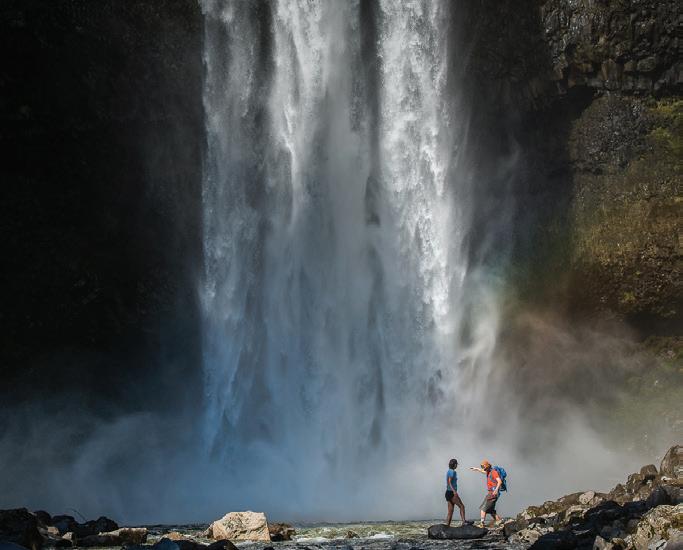
Nathan McLoughlin, Travel Trade Manager, Destination Canada. says: “For many travelling to Canada the highlight is the Great Outdoors, and increasingly they are interested in activities that are sustainable, help to support local communities and which won’t have a negative or harmful impact on natural resources.
Tour operators report that lodge-based experiences are selling well, as are RV trips where people can stay in national or provincial park campgrounds and enjoy activities like hiking, canoeing and wildlife watching. Clients are also booking longer stays in fewer places, which has less of an environmental impact and allows them to become fully immersed in the area.
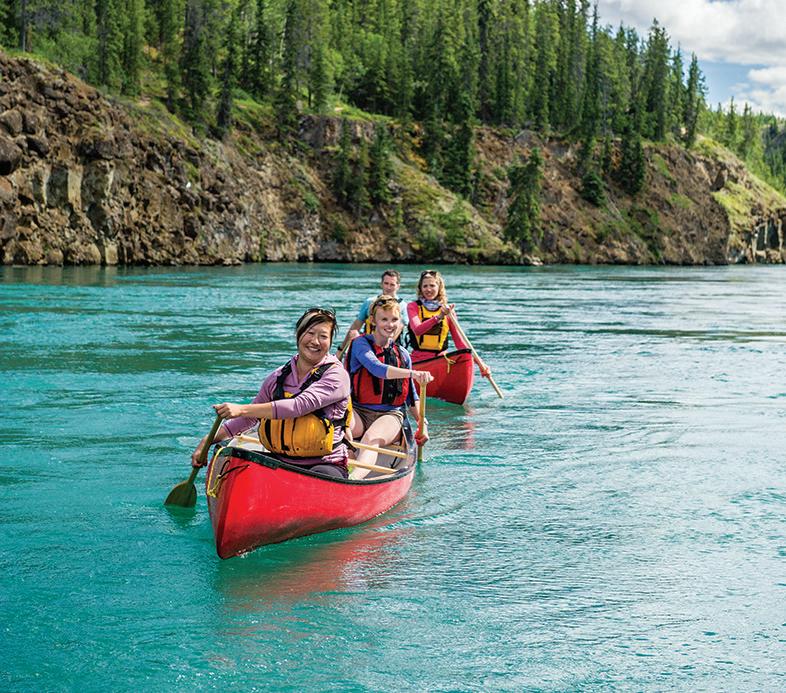
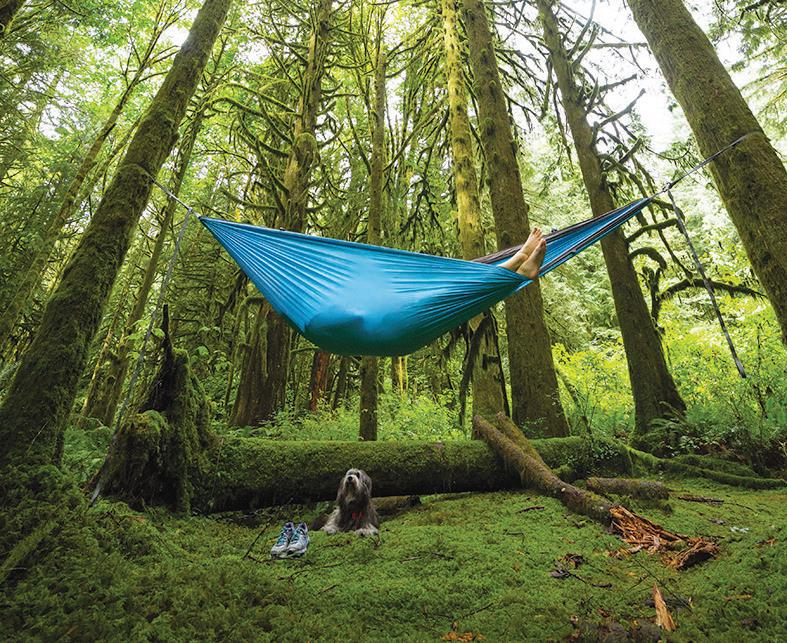
There is also an increased demand for Via Rail train routes and ferry services, rather than driving or flying.
Agents can keep up-to-date with responsible tourism developments and training by signing up to the Canada Specialists Programme at canadaspecialist. com.au and at .keepexploring.com.au
Lighter experiences
Stay in luxury off-grid: One of Canada’s newest indigenous cultural experiences, the First Nations owned, all-inclusive Klahoose Wilderness Resort in the wonderfully named Desolation Sound,
British Columbia, offers grizzly bear viewing tours in Toba Inlet, the traditional territory for the Klahoose First Nation people. The eco-resort has four lodge rooms and three private cabins with ocean views, produces its own power, and has innovative water-saving and recycling initiatives in place. klahooseresort.com
Raise a sustainable glass: Ontario produces 70% of Canada’s wine in its three growing regions: the Niagara Peninsula, the north shore of Lake Erie and Prince Edward County. With 53 vineyards and 24 wineries already certified for their eco credentials by Sustainable Winegrowing Ontario – including Niagara’s Flat Rock Cellars, 13th Street Winery and Henry of Pelham Family Estate – visitors can learn about responsible, environmentally friendly viticulture, while sampling award-winning wines on guided vineyard tours and tastings. sustainablewinegrowingontario.ca
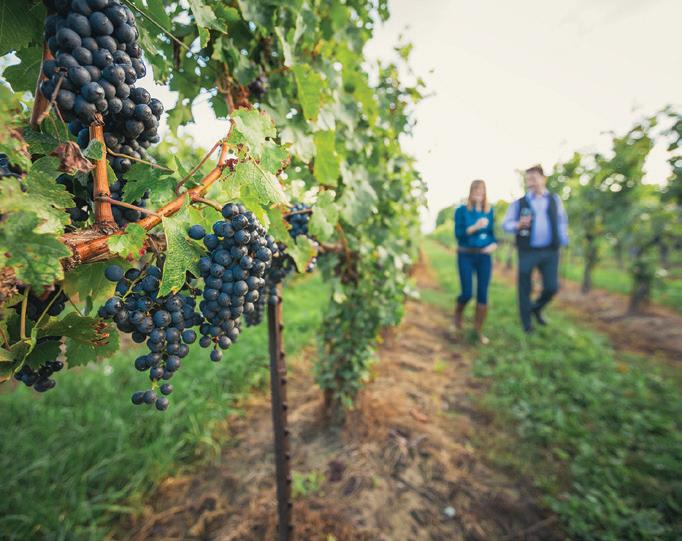
Camp lightly: Nova Scotia’s Kejimkujik National Park and National Historic Site is now home to Parks Canada’s first net-zero campground. Jeremy’s Bay has 360 camping sites, plus four types of roofed accommodations including cabins and yurts powered by 270 solar panels, making visitors’ camping holidays more eco-friendly. The Atlantic province’s only Dark Sky Preserve offers paddling, biking and back-country hiking, and the chance to connect with indigenous Mi’kmaq culture. pc.gc.ca.
Learn to live in the Arctic: The Okapis Arctic Village in Canada’s Northwest Territories offers a unique year-round opportunity to experience First Nations culture and traditions. Visitors can get involved in cabin or igloo building, harvesting and foraging, and learn how the region’s indigenous Gwiich’in and Inuvialuit people live sustainably off the land. Three-day winter packages include the chance to explore by ski, snowshoe or electric fat bike. okpikarcticvillage.com
What’s new accommodation: A new 40-room boutique lodge has opened at the Métis Crossing interpretive centre in Smoky Lake, Alberta, offering land-to-table indigenous cuisine, and immersive seasonal experiences to connect guests with the Métis Nation culture and their ancestral lands. thelodgeatmetiscrossing.com
Spend the night high in a canopy of trees in one of the new Ôasis camping units in Forillon National Park (Québec); Fundy National Park and Kouchibouguac National Park (New Brunswick); and Terra Nova National Park (Newfoundland and Labrador). Using renewable energy, each teardrop-shaped pod accommodates up to two adults and two children. pc.gc.ca
Funded through a local indigenous-owned business development group, the Black Spruce Hotel offers elevated, energy-efficient wooden cabins nestled amidst trees and rocks in the Yukon’s capital, Whitehorse. yukonblackspruce.ca
Pursuit Collection has launched the Forest Park Hotel Jasper, a wildernessinspired 88-room hotel and spa, with rooms designed to bring the ‘outdoors in’. banffjaspercollection.com
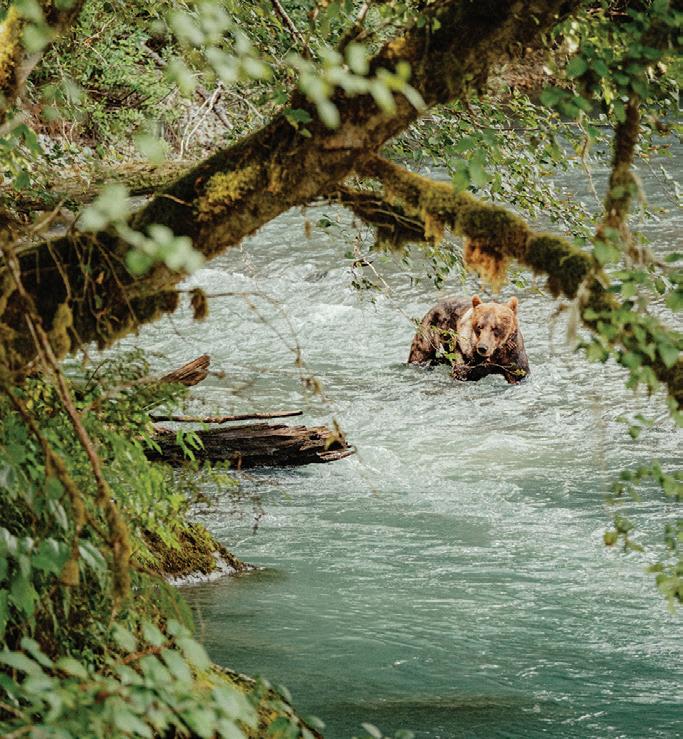
Transport: Frontiers North Adventures in Churchill, Manitoba, have unveiled a new zero-emission Electric Vehicle Tundra Buggy to reduce environmental impact and noise pollution on its tours to see polar bears, beluga whales and the northern lights. frontiersnorth.com
The Réseau Express Métropolitain (REM), a new electric light rail system in Montréal, Québec, connects the city’s North Shore, South Shore, West Island and Montréal-
Trudeau
The new e-scooter and e-bike initiative in Edmonton, Alberta, joins the successful shared micromobility programme in Calgary, and offers visitors a greener way to explore the city. edmonton.ca / calgary.ca










